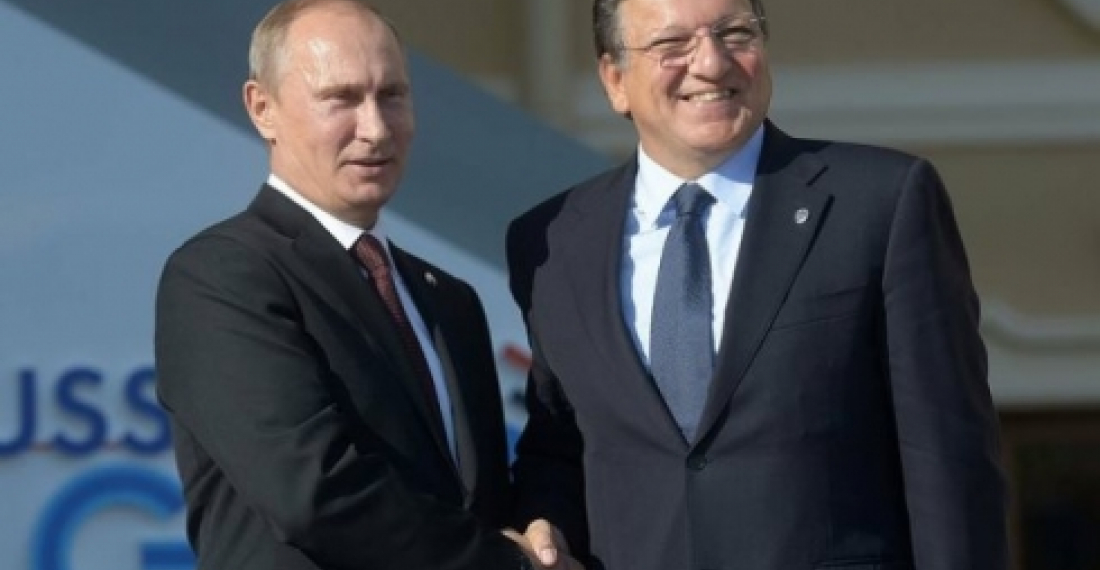Commentary
The G20 Summit kicked off in St Petersburg yesterday amid growing international tensions about Syria. The world is split on the issue of intervention in Syria with the United States and France preparing for unilateral military intervention, whilst Russia, China, Germany, the European Union and others advocating a political solution. Britain, initially part of the hawkish group, now finds itself somewhere on the side following the UK Parliament's decision to reject the military option.
The EU has a seat around the G20 table in its own right, and is represented in St Petersburg by the President of the Council, Herman van Rompuy and the President of the European Commission, Jose Manoel Barroso. Events of earlier this week that saw Armenia do a round about turn by opting to join the Russia backed Customs Union and the proposed Eurasian Union had no place in the discussions, even if Russia's plans for an economic bloc is something that will interest the G20 in the long term.
Ths issue however was on the agenda in Brussels where Armenian officials have been trying to do a damage limitation exercise. The problem is not Armenia's decision, as expressed by its President Serzh Sargsyan in his meeting with President Putin on Tuesday. The problem is that for the last four years Armenia had been persuing a different strategy, and had engaged in the most complex and detailed negotiations with the EU with a view to signing an Association Agreement and a Deep and Free Comprehensive Trade Area agreement, something which is generally considered to be incompatible with the Russia backed initiatives. Negotiations had been successfully concluded in July and everything was set for initialling the agreements in Vilnius in November. Armenian officials until a few days ago had been clear that they understood that they had a choice to make, and had opted for the EU option because this made better economic sense. The sudden change of heart was therefore, to put it mildly, a surprise.
The mood in Brussels is one of utter astonishment all round at this act of Armenian geo-political gymnastics. Given the rather unfortunate choice of words of President Sargsyan in Moscow on Tuesday, some went so far as to say that Armenia had never intended to sign in Vilnius anyway, and had been negotiating in bad faith. There are now two schools of thought. The first says that since this is up to Armenia to decide, and since its President seems now to have decided, the matter should be left at that and Armenia should be left to enjoy its complete dependence on Russia; a second school of thought argues that Armenia has been forced into this decision by Russia, and that efforts should be made to assist it to fight off this political pressure. Brussels being Brussels the matter will be under consideration for some time, and in the end it is likely that it will be the member states, meeting in Council, that will have to decide the issue.
The most positive side of the story is that the events of the last days have stirred a discussion within Armenia itself, some of which at least, goes beyond the usual arguments and is refreshingly down to earth and strategic in its outlook. A number of "certainties" of the past are being questioned. For Armenia, this discussion is far more important than the ones taking place in Brussels.
This commentary was prepared by the editorial team of commonspace.eu
photo: President Putin welcomes the President of the European Commission, Jose Manoel Barroso at the G20 Summit in St Petersburg on 5 September 2013 (picture courtesy of the Press Service of the president of Russia)







